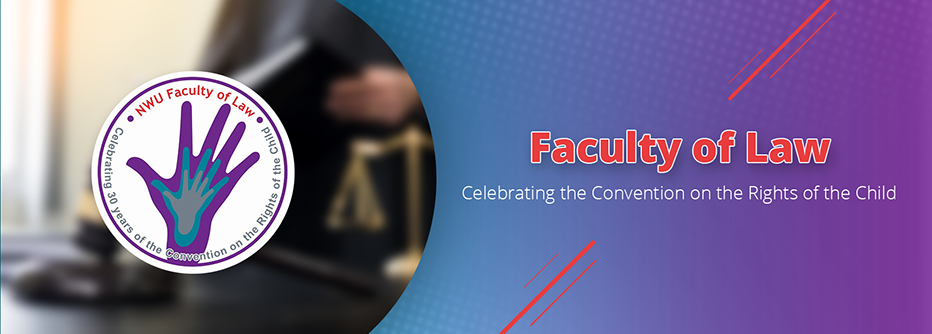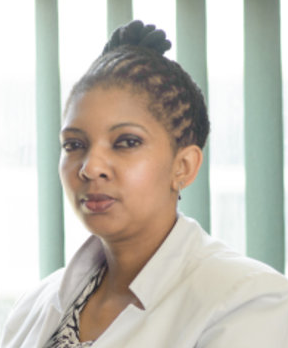
[Accordion collapsed]
Background
Anno 2019 is of particular importance for South Africa. It will be 30 years since the Convention on the Rights of the Child (CRC) (1989) has come into operation and 25 years since the constitutional democracy has taken root in this country in terms of a Bill of Rights entrenching everyone’s fundamental rights. Both these instruments in fundamentally significant fashion impact on legal development in South Africa and it is suggested that it is apposite to celebrate them both appropriately.
The importance of the CRC lies in the fact that it is steadfast in imbuing respect for the dignity, worth and respect for the person of the child while also promoting social, political and economic rights for children in a free society. The CRC is not only the most ratified treaty of all human rights treaties but ratification has also taken place in a remarkably brief period of time. The true importance of this treaty lies in its impact on state behaviour towards the rights of its children.
Prior to the CRC, a treaty creating obligations for States Parties to respect and further the interests of children, various declarations existed. Essentially these declarations contributed little to alleviate the plight of children qua the most vulnerable members of society. The CRC has been accepted into South African law and the Children’s Act, Child Justice Act and Schools Act essentially bear out on South Africa’s adherence to its obligations in terms of the CRC. In fact, section 28 of the Constitution provides for the fundamental rights of children along the same lines of approach as that adopted in the CRC.
Five years after the CRC the Interim Constitution came into force on 27 April 1994. The significance of the interim Constitution which was followed in 1996 by the Final Constitution lies in the fact that for the first time in the country’s history the franchise and associated political and civil rights were accorded to all citizens without racial qualification. The British notion of parliamentary sovereignty was replaced by the principle of Constitutional supremacy and a Bill of Rights enshrining the fundamental rights of “everyone” was put in place. This ended centuries of abuse (or toleration thereof) of the dignity and rights of people.
It is suggested that the importance of both these instruments merit celebration by an institution such as a law faculty. They both fundamentally changed the course of legal development and the submission would be to consider an opportunity commensurate with the gravity of these instruments.
It is at the backdrop of above that the NWU Faculty of Law wishes to host several events throughout the course of 2019 to commemorate these events.
Event description: awareness march
The first event (a cross-campus initiative) will take place in Potchefstroom on 26 February 2019. It will start with an awareness march from the Faculty of Law down ‘wasgoedpennetjielaan’ and lovers’ lane and pass the front of building F1 to the Sanlam Auditorium. Dignitaries to lead the march. This will be followed by a public lecture in the Sanlam Auditorium. The purpose of the march is to create awareness of children’s rights and human rights in general.
Event description: public lecture by Mrs Karabo Ozah
 The march will be followed by a public lecture at 12:30 in the Sanlam Auditorium by Mrs Karabo Ozah. She is the Director at the Centre for Child and an extraordinary lecturer in the Department of Private Law. She obtained her LLB and LLM in Child Law (cum laude), as well as a Certificate in Advanced Labour Law from the University of Pretoria. She was admitted as an attorney of the High Court of South Africa in June 2006. She started her legal career as a candidate attorney at the University of Pretoria Law Clinic, in 2005 and joined the Centre for Child Law in 2007. The Centre for Child Law advances children’s rights through litigation, research and advocacy. Karabo also appears regularly in the High Courts and in 2016 she argued her first case in the Constitutional Court on behalf of the Centre for Child Law.
The march will be followed by a public lecture at 12:30 in the Sanlam Auditorium by Mrs Karabo Ozah. She is the Director at the Centre for Child and an extraordinary lecturer in the Department of Private Law. She obtained her LLB and LLM in Child Law (cum laude), as well as a Certificate in Advanced Labour Law from the University of Pretoria. She was admitted as an attorney of the High Court of South Africa in June 2006. She started her legal career as a candidate attorney at the University of Pretoria Law Clinic, in 2005 and joined the Centre for Child Law in 2007. The Centre for Child Law advances children’s rights through litigation, research and advocacy. Karabo also appears regularly in the High Courts and in 2016 she argued her first case in the Constitutional Court on behalf of the Centre for Child Law.
Karabo has been part of various research project for the National Department of Social Development, Save the Children South Africa and Regional as well as the United Nations Populations Fund-East and Southern Africa. Karabo served as an independent board member and the National Chairperson of Childline SA from 2009 until September 2016. Currently, she is a member of the Rules Board’s Children’s Court Task Team whose mandate is to draft court rules for the Children’s Courts in South Africa. Furthermore, Karabo is a member of the Hague Expert Group on International Parentage and Surrogacy which is tasked with researching the possibility of an international treaty to regulate international parentage and surrogacy
Programme
[/Accordion]
- René Koraan (018 299 4287, rene.koraan@nwu.ac.za )
- Annelie Pheiffer (018 285 2616, annelie.pheiffer@nwu.ac.za)
